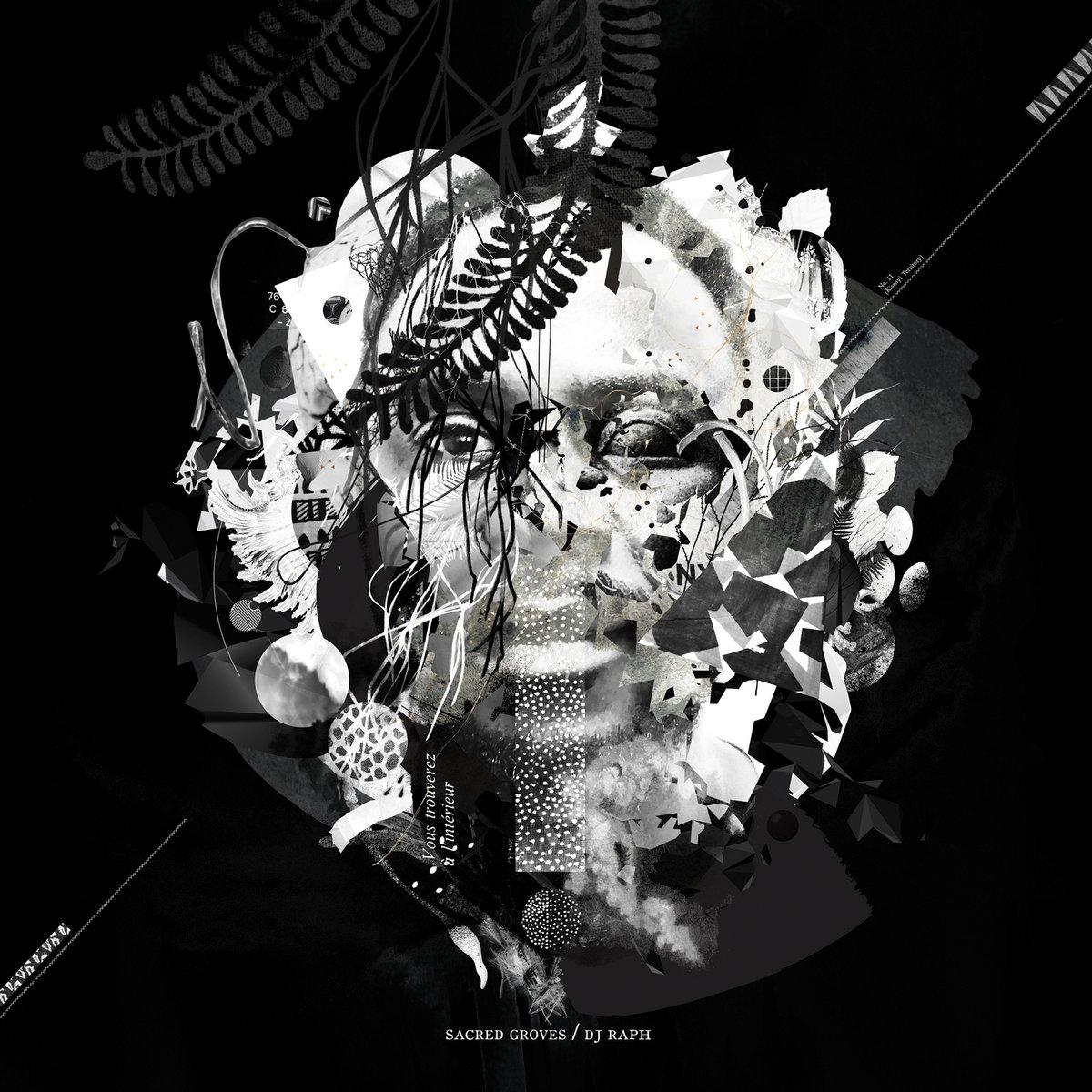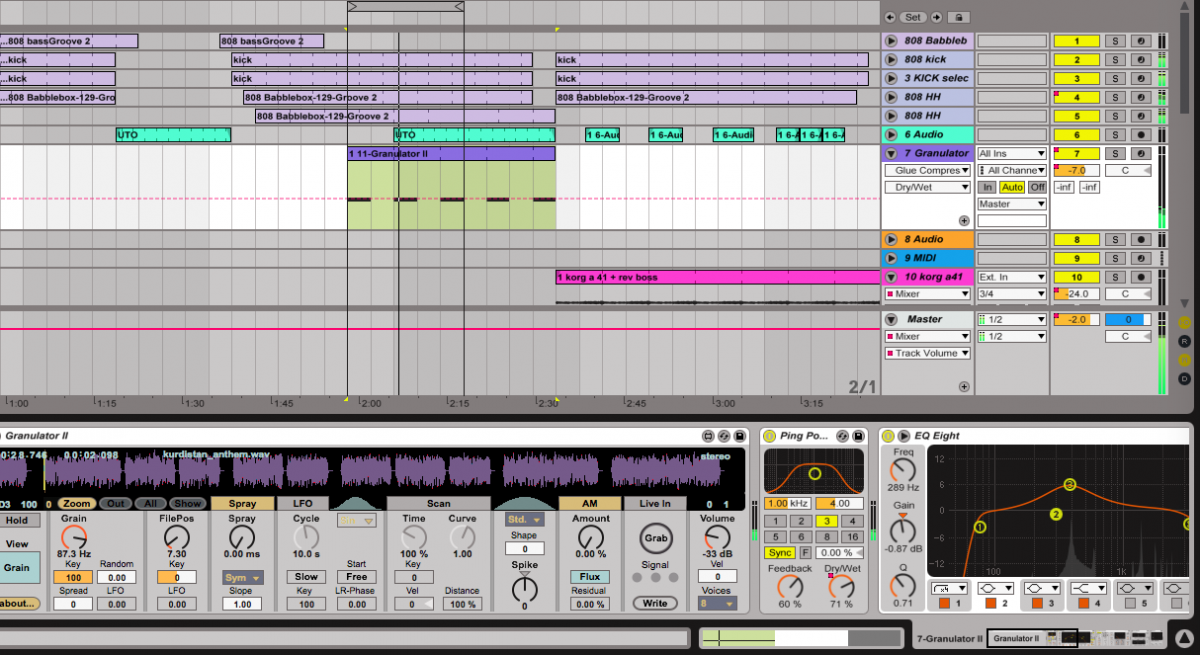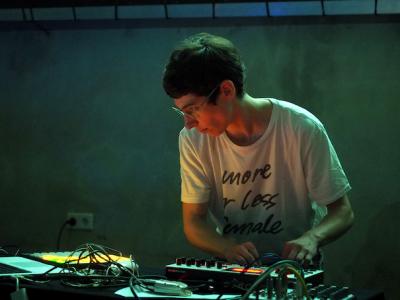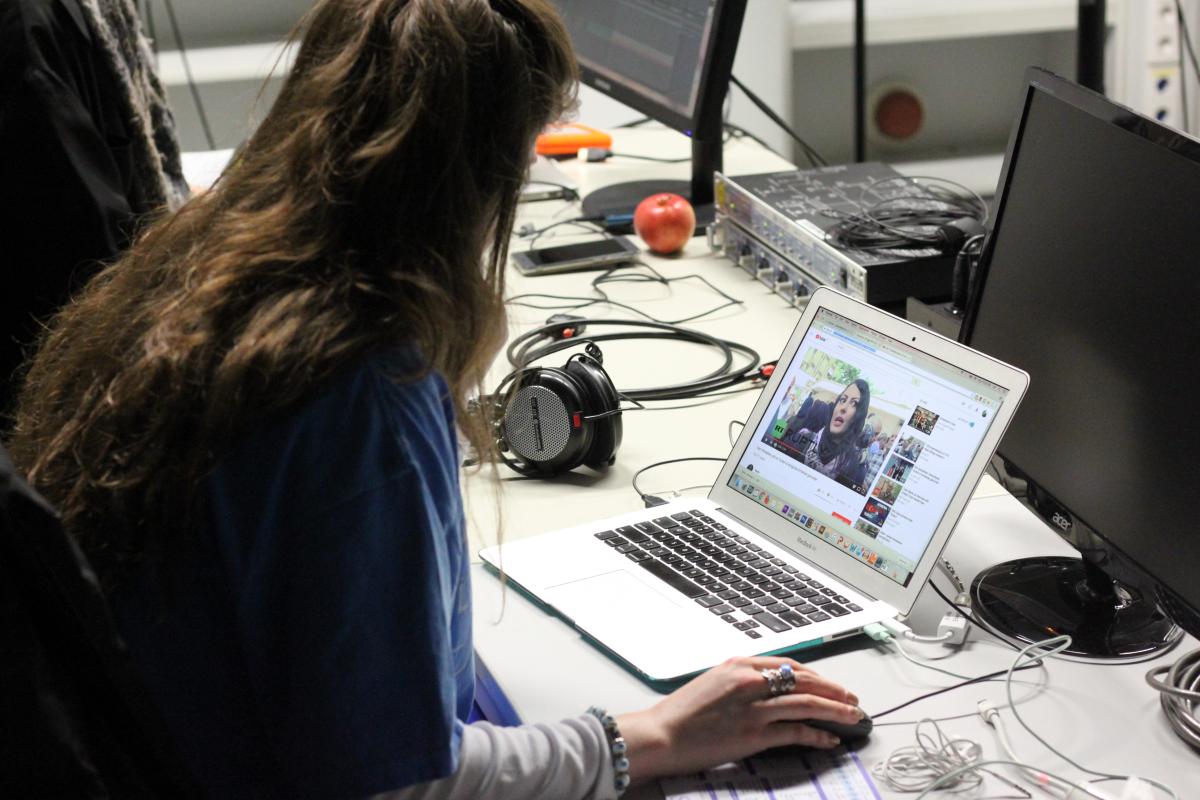
Sampling Stories Vol. 18: DJ Raph
After being invited by the Iwalewahaus Bayreuth, Nairobi-based electronic musician and producer DJ Raph did an artist residency in Germany, rummaging through the institution’s extensive music archive of ethnographic field recordings from Africa. The result can be heard on his debut album, Sacred Groves (Noland 2018). Here I discuss how the sampling process pays tribute to its sources and how the producer has dealt with the meaning of the used samples in their original contexts.
A drawn-out tone, sung by a voice, obviously sampled; sharply looped after one bar that makes it hard to attach any specific character to it. The attack of the voice builds the leading rhythmical element, defines the pulse. A humming bass drum underneath and slightly in the back is not caring about its familiar function of offering rhythmical orientation. Where is that sample coming from?
The Past Cult of Ryangombe
Looking for the sample sources doesn’t take much time. An information sheet updates the querist about the origins and makes the sampling process highly transparent. For the track in question we can read that the sample comes from the «sacred music of the cult of Ryangombe». (A short Internet search tells me that the cult was geographically located in the area of today’s Rwanda and is not in practice anymore.) It further reads that the song sampled here «was never performed outside of its ritual context so as not to risk the wrath of the spirits». How does it happen that DJ Raph has sampled this particular tradition, which obviously seems to be distant from his own position in present-day Kenya, and which was never intended to be heard outside of its ritual context? He justifies his choice with both aesthetics and the contextual meaning. First, he has chosen all samples for aesthetic reasons out of the vast corpus of the archive: «I chose sounds that struck me for their beauty, vibe, or sound.» Having said that, the project seems to be a deeply personal one: «My interest in the music was part of a larger search for the lore of different original African societies that would help me in the construction of my own worldview», he explains.
Disappearing Traditions
Sampling archival footage has become fashionable in recent years (see for example the Dutch initiative RE:VIVE) and has not always been successful in being more than a great institution-funded opportunity of music-making and a playful (often nevertheless artistically convincing) experiment with unknown sound material. With his careful procession of traditional sounds, DJ Raph definitely goes one step further. In «Chant of the Umuhara» the different layers of the sampling material and rhythmic elements are composed carefully, always leaving much space to the sample to unfold, but not without adding his own substantial note to it. Towards the end the track suddenly stops, and the rhythm part is resumed for a full 16-bar loop, without the heaviness of the bass drum. This is maybe the most magical moment of the track. Although the sample is physically absent it still resonates. It is this particular moment that also illustrates that the meaning of the original source is not only important for the producer in his personal search of identity, but also insofar as it makes sonically obvious that all these traditions featured on Sacred Groves have disappeared. In the end, it needed the (colonial) archive material of a German archive, remixed by a Kenyan artist, financed by German funding, to keep them at least partially alive.
This article has been written on the basis of an email interview between 16.3. and 26.4.2018. It has been published in the context of the PhD research on sampling in experimental electronic music by Hannes Liechti. For more info click here.
Biography
Published on May 04, 2018
Last updated on April 10, 2024
Topics
A form of attachement beyond categories like home or nation but to people, feelings, or sounds across the globe.
From Pakistani wrestling practice «kushti» to muezzin singing contests in Turkey.
Sampling is political: about the use of chicken clucks or bomb sounds in current music.
From westernized hip hop in Bhutan to the instrumentalization of «lusofonia» by Portuguese cultural politics.
Special
Snap



